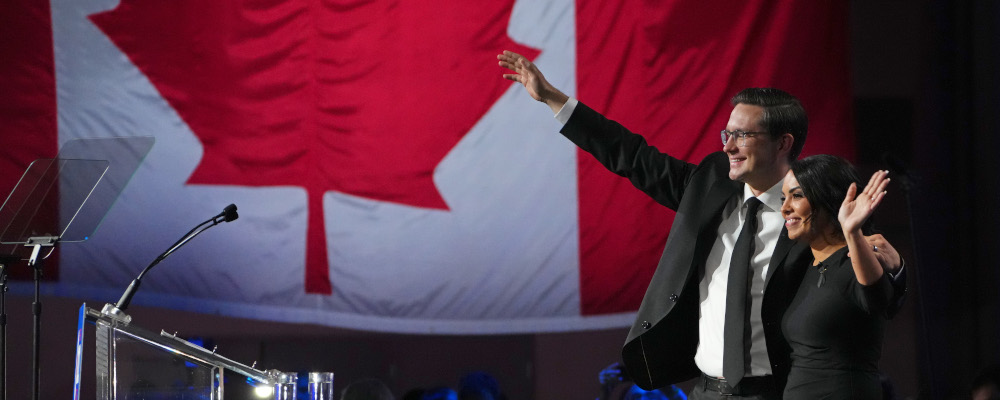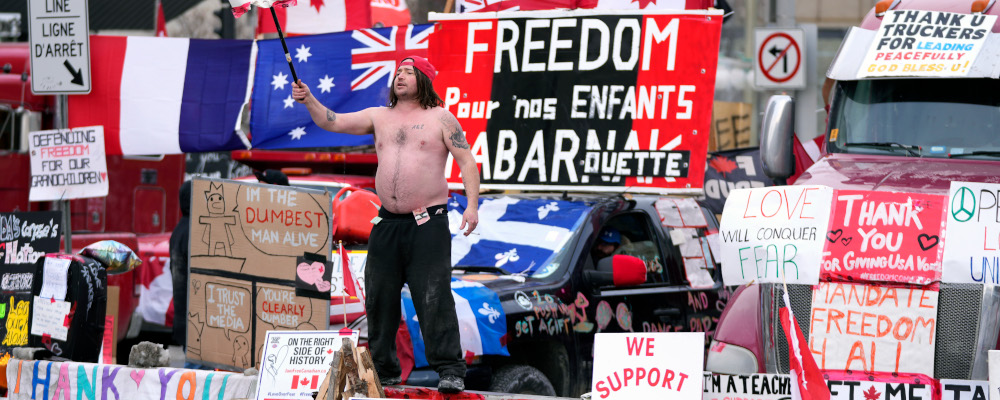As someone who has been in and around Canadian Conservative politics for more than twenty years, a common critique that I’ve regularly confronted is that conservatism is fundamentally concerned with the interests of the wealthy and well-connected. It can conjure up images of bankers and oilmen in the minds of many.
Even though the modern Conservative Party has the old Reform Party’s egalitarian impulses embedded in its DNA, these elitist perceptions still persist. I’ve observed focus groups over the years for instance where one frequently hears claims like “conservatives are for the rich” or “conservatives don’t care about people like me.”
This hasn’t been my own personal experience, by the way. I was drawn to conservatism as a young person in Thunder Bay not because of my blue-blooded pedigree but for the opposite reason: the world of conservatism seemed open and inclusive. It was an intellectual and social context that celebrated meritocracy and rejected hereditary claims to power and status. It was a place for aspirants and strivers. It was the political home of John Diefenbaker, “the boy from Baie Comeau” and Stephen Harper’s decidedly middle-class politics.
One gets the sense that the gap between my youthful perception and the public’s inegalitarian views about Canadian conservatism may be starting to close. Old ideas about the Left and Right no longer have quite the same explanatory power for understanding politics, class, and culture.
Think of the commanding heights of modern society. Most of them are today dominated by progressive ideas and voices. That may not be particularly new for universities or non-profit organizations. But it does seem to represent a change in the corporate world. The rise of the knowledge economy has produced a new professional class, as the public intellectual Michael Lind puts it, which occupies the middle layer of corporate culture and subscribes to a set of left-wing views about culture and the economy.
Progressivism’s growing institutional dominance has pushed conservatives into the counterintuitive position of outsiders. For young people, in particular, conservatism is now something of a countercultural identity. It stands in juxtaposition to the boring, predictable, and ultimately establishmentarian views of their reflexively left-wing professor or human resources manager.
These trends also extend to politics. A new fault line has emerged in the past several years between the major political parties rooted in a mix of ideology and class. The party leaders, Justin Trudeau and Pierre Poilievre, are themselves proxies for these different sets of experiences and worldviews.
Prime Minister Trudeau, himself the son of a prime minister, is a perfect stand-in for the Central Canadian progressive establishment that attended schools like McGill University, grew up in and around left-wing civic groups like Katimavik, is fluent in the customs and language of identity politics, critical of the perceived excesses of market capitalism, and confident about the technocratic capacity of the state to engineer particular economic and social outcomes.
Poilievre, by contrast, was born to a teenage mom, grew up in the west to adopted parents, and attended a solid yet second-tier regional university. He’s come to represent a western-based libertarian populism that rejects identity politics in favour of personal responsibility, lionizes the market’s leveling effects, and is skeptical of the excesses of state action in the economy or society.
The biggest differences, though, between the two may be as much about culture as ideology or class. The former is generally comfortable with its place in elite Canadian circles. The latter has a bit of a chip on its shoulder.
The former’s emphasis on income inequality reflects, in broad terms, its generational advantages and preservationist instinct. The latter’s focus on social mobility is instead an expression of its own impatient energy. Trudeau wants to close the gap between rich and poor. Poilievre wants to extend the social ladder to more people.
If the former is representative of Globe and Mail columnist John Ibbitson’s famously described “Laurentian elite”, the latter may be a voice for the ambitious middle-class products of small- and mid-sized communities across the country who one might characterize as “Lakehead meritocrats.”

The good news for Canadian Conservatives is that there’s reason to think that the pool of prospective Lakehead meritocrats is bound to grow faster in the coming years as annual immigration levels continue to rise. There are, after all, few acts more indicative of the climber mentality than picking up and moving your family to a new country and culture in search of opportunity for you and your children. Poilievre instinctively understands this point: it’s the story of his wife’s own family.
It’s also the story of his finance critic Jasraj Singh Hallan who immigrated with his parents to Calgary from the Middle East when he was five years old. His family faced bouts of significant financial insecurity and he was drawn into the trappings of street gangs before a community volunteer helped to put him on a better path that eventually led to a successful homebuilding business and election to the federal Parliament in 2019.
Hallan’s extraordinary rise to the Conservative Party’s leading voice on economic and fiscal matters is both a powerful affirmation of what he calls “the Canadian dream” and its central place in the Conservative self-image under Poilievre’s leadership.
If his convention speech from the night of the Conservative leadership result is a sign, we can anticipate that a major part of Poilievre’s ongoing political appeal will be to the Lakehead meritocrats drawn from his own story of social mobility. As he put it in his remarks:
We will restore Canada’s promise—in a country, where it doesn’t matter who you love. Or if your name is Smith or Singh, Martin or Mohammad, Chang or Charles. A country where the dreamer, farmer, the worker, the entrepreneur, the survivor, the fighter, the ones who get knocked down but keep getting back up and keep going, can achieve their purpose. A country where the son of a teenage mother adopted by two teachers can dare to run for prime minister of Canada.
Notwithstanding this week’s disappointing by-election outcome, Poilievre and the Conservatives would be wise to recommit themselves to this message and identity. It’s one that’s bound to resonate with a large swath of the Canadian population including a new generation of newcomers like Hallan. It certainly would have with my twenty-year-old self back in Thunder Bay.
Recommended for You

Ginny Roth: J.D. Vance, Pierre Poilievre, and how they slice their economic pie

David Polansky: As President Biden leaves the race, will the Democratic Party hodgepodge hold?

Adam Zivo: No Dr. Bonnie Henry, drug prohibition is not ‘white supremacy’

Peter Menzies: The mainstream media should love Doug Ford, now that he’s subsidizing them











